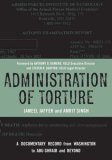Turkish planes bomb Iraq village
Turkish warplanes attacked a village in northern Iraq on Wednesday, an Iraqi Kurdish security official said, but Turkey said it wanted to hold back from a major incursion to give diplomacy a chance.
The Iraqi official, speaking on condition of anonymity, said a Kurdish village in mountainous country near Shiranish Islam, 25 km (15 miles) northeast of the northern town of Dahuk, had been heavily bombed at midday. He gave no details of damage.
The Turkish government is under great domestic pressure to strike separatist PKK (Kurdistan Workers Party) guerrillas in northern Iraq who killed 12 Turkish soldiers on Sunday as part of an intensified campaign against government troops.
Washington and Baghdad fear a major Turkish incursion into northern Iraq could destabilise the whole region.
Turkish security sources said earlier that Turkish warplanes had flown a series of sorties 20 km (12 miles) into Iraq in the past three days, while some 300 troops had advanced about 10 km (6 miles) into northern Iraq. [complete article]

